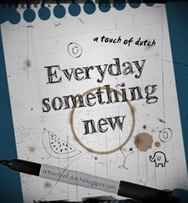There is no magic formula to passing a singing audition with flying colours. One thing common to all successful auditioned is plenty of thick, viscous
groundwork. You simply can’t go into battle unprepared. Those moments, days and weeks leading to your audition are all under your control. Either you
choose to use this time to refine your runs and whatnot, or just rely on raw, nervous talent.
Without further ado, here are some of the ways you can sing your way to the top of the heap:
Before the audition
Without further ado, here are some of the ways you can sing your way to the top of the heap:
Before the audition
- It is a mortal sin to audition for a show you have no idea about. Acquaint yourself with the show to the hilt. If you can’t attend the show, watch a DVD or YouTube clip of it. Look up the script online. Listen to the score or cast recording. There simply is no excuse. Familiarize yourself with the show until you’re singing the songs by note and in your sleep, so to speak.
- However, don’t pick something from the show for the audition. To panellists, a song from the show can get old easily and they may just randomly shut you out the shortlist for something so arbitrary. The risk is even greater if the song’s composer is auditioning you. The solution then is to pick a piece that echoes the range and style of the character you are trying out for.
- Like swimmers who practice from the top after a prolonged hiatus, ensure that your voice reverts to a-1 condition prior to auditioning. Set aside enough time to rehearse. A week before D-Day is inadequate.
- A vocal coach can work closely with you on audition techniques, including the use of vocal slides, voice lesson tracks, and piano tracks. Your coach should also be able to warm up your voice as well as determine the right posture and body language for your song. He or she can also equip you with the necessary breathing exercises to relax your body for maximum performance.
- Your teacher should also be able to determine the best songs for your range. In general, don’t wade into something that is not suitable for you. To be sure, listen to a recording of yourself singing the material. Also, make sure the song you choose is ultimately something you love singing. Your zeal for this song will show through to your judge.
- If you can, tag your own pianist to the audition. Be sure, however, that you have practiced the song/s with him or her enough times. In fact, you should rehearse with a pianist using sheet music, not a recording. Take time to find sheet music for your audition song.
- Smile and be friendly to the other aspirants but don’t engage in too much small talk. You should use the crucial hours leading up to the audition to draw positive vibes unto yourself. Also, don’t fall for gossip being fed around the line, e.g. that the director likes this and that, etc. For all you know, this could be sabotage on the part of other auditions. Instead of being a chatterbox, keep quiet and apply the breathing exercises you’ve learned to keep the stress hormones at bay.
- Don’t stop if you screw up. Keep in mind that the show must go on as much in the audition room as in the theater. Keep on keeping on and try your best to conceal the fact that you’ve erred.
- Don’t be fazed by the seeming lack of attention while you’re singing. It is imperative that you remain focused, with laser precision, on your piece. Just because the panelist are talking to each other instead of concentrating on you doesn’t mean you’re a throwaway. At least not yet.
- If you’ve gained a call-back, try to wear the same outfit, hair and makeup. Directors are visual creatures like any other and tend to associate standouts at the audition more with appearance than name. One entertainer we all know and love got her breakthrough by wearing the same dress at the audition and call-back .
- Treat auditions like a numbers game. The more you enter, the greater your chances of winning. Going to one audition after the other would only hone the audacity needed to prosper in future tryouts. In between auditions, condition yourself to be in front of as many people as possible. Most of all, never give up.







0 comments:
Post a Comment